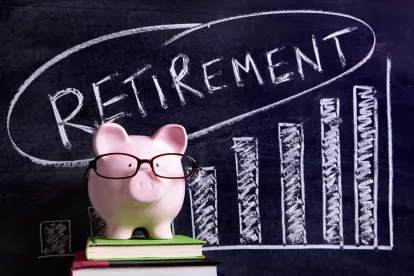In recent years, large numbers of employers have closed their traditional defined benefit pension plans to new hires and instead enrolled them into defined contribution plans (like 401(k) plans). As the participants who continue to earn benefits under the closed plans progress in their careers and are promoted into higher-paying positions, closed plans may begin to cover a disproportionate share of an employer’s highly compensated workforce as newer, lower-compensated employees continue to enter the replacement plan.
This demographic development ultimately threatens to cause some of these closed plans to fail the nondiscrimination testing imposed by the tax rules that govern qualified plans. This testing is intended to ensure that such plans do not unduly discriminate in favor of highly compensated employees in terms of benefits or contributions and coverage. In response to concerns that employers would fully freeze or terminate closed defined benefit plans to avoid nondiscrimination testing failures, the IRS had issued temporary relief in recent years, in Notices 2014-5 and 2015-28, and promised more permanent guidance.
In the January 29, 2016, Federal Register, the IRS published proposed regulations that indefinitely implement the temporary relief, as well as provide additional measures that grant employers more flexibility under the nondiscrimination rules to maintain the existing benefits of a “grandfathered” group of employees. Like the temporary guidance, the proposed regulations liberalize the rules that permit defined benefit plans and defined contribution plans to be aggregated together to pass nondiscrimination testing. Under the proposed regulations, the relief will not apply to the extent the defined benefit plan was materially changed in the five years prior to its closure or was unable to pass testing conventionally in the first five years after the year of closure. Even though the regulations are in proposed form, plan sponsors can rely on this guidance for plan years that begin on or after January 1, 2014.
The proposed regulations also give employers additional flexibility in preserving more generous benefit structures for “grandfathered” employees under both defined contribution and defined benefit plans. The rules liberalize nondiscrimination testing standards with respect to the treatment of enhanced defined contribution allocations made on behalf of former defined benefit plan participants who now participate in an employer’s defined contribution plan.
Moreover, although qualified plans generally must offer benefits, rights, and features to participants on a basis that does not discriminate in favor of highly compensated employees, the proposal provides for the deemed satisfaction of nondiscrimination testing of benefits, rights, and features offered only to a “grandfathered” group in certain circumstances. Sponsors can rely on this relief for plan years beginning on or after January 1, 2014, as well. Further, the proposal would liberalize nondiscrimination testing for sponsors with both defined benefit and defined contribution plans where a defined contribution plan provides for age- or service-based contribution allocations, although this relief cannot be relied on until the rules are finalized.
Although the proposed regulations are mostly good news for plan sponsors, the regulations do contain one bit of surprising bad news: they would also toughen nondiscrimination testing for plans that provide a special benefit formula for a class of employees in arrangements often called “qualified supplemental executive retirement plans” (QSERPs). This proposal is a significant change in the IRS’s view of QSERP arrangements and affects all defined benefit plans, not just those that have been closed to new participants. We will shortly publish a separate blog post on this development.
The IRS is soliciting comments and has scheduled a public hearing on the new rules for May 19, 2016. Comments, which can be submitted electronically at www.regulations.gov, must be received by April 28, 2016.



 />i
/>i

